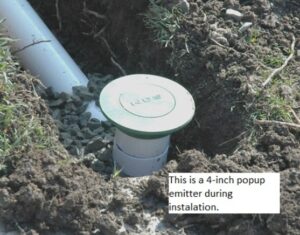When it comes to ensuring the health and safety of your family, having access to pure and safe drinking water is paramount. Kitchen water filters play a crucial role in home water purification systems, allowing you to enjoy clean water right from your tap. In this guide, we’ll explore the various types of kitchen water filters, their benefits, and how to choose the best water purification system for your needs.
Why Invest in a Kitchen Water Filter?
Are You Really Drinking Safe Water?
Tap water quality can vary significantly based on your location, plumbing, and municipal supply. Contaminants like chlorine, lead, pesticides, and bacteria can compromise your water quality. Investing in a kitchen water filter is essential for:
• Improving Taste and Odor: Filters effectively remove chlorine and other impurities that affect the flavor and smell of water.
• Ensuring Health Safety: Kitchen water filters can reduce harmful contaminants, providing safer drinking water for your family.
• Convenience and Accessibility: Having a filtration system at home means you can enjoy pure water without needing to buy bottled water.
Types of Kitchen Water Filters
1. Activated Carbon Filters: The Taste Enhancer
Activated carbon filters are one of the most common types of kitchen water filters. They work by adsorbing impurities and contaminants, making them ideal for improving taste and odor.
Advantages:
• Effective in removing chlorine and sediment.
• Affordable and easy to install.
• Available in various forms, including faucet-mounted, pitcher, and under-sink filters.
Considerations: While activated carbon filters are excellent for taste, they may not effectively remove heavy metals or certain bacteria.
2. Reverse Osmosis Systems: The Heavy-Duty Filter
Reverse osmosis (RO) systems are among the most effective water purification systems available. They use a semi-permeable membrane to remove a wide range of contaminants, including heavy metals, salts, and microorganisms.
Advantages:
• Comprehensive filtration, removing up to 99% of contaminants.
• Great for households in areas with high levels of contaminants.
• Provides cleaner, better-tasting water.
Considerations: RO systems can waste some water during the purification process and may require more frequent maintenance.
3. UV Water Purifiers: The Microbial Assassin
Ultraviolet (UV) water purifiers use UV light to kill bacteria, viruses, and other pathogens present in your water.
Advantages:
• Highly effective at disinfecting water without adding chemicals.
• Retains essential minerals in the water.
• Environmentally friendly and energy-efficient.
Considerations: UV systems typically need to be used in conjunction with another filtration system to remove chemical contaminants.
4. Multi-Stage Filters: The Comprehensive Solution
Multi-stage filters combine several filtration methods to address a broader range of contaminants. These systems often incorporate activated carbon, sediment filtration, and sometimes reverse osmosis.
Advantages:
• Provides thorough purification by targeting various contaminants.
• Convenient all-in-one solutions for home water filtration.
• May offer additional features, such as remineralization.
Considerations: Multi-stage filters can be more expensive and may require professional installation.
How to Choose the Right Kitchen Water Filter
1. Assess Your Water Quality
The first step in selecting the right kitchen water filter is to assess your water quality. Testing your water for contaminants can help you identify what specific impurities you need to address.
Tip: Purchase a home water testing kit or contact your local water authority for a water quality report.
2. Determine Your Household Needs
Consider the size of your household and your water consumption. A family of four may require a different filtration capacity compared to a single-person household.
Tip: Look for filters with appropriate flow rates to ensure you have enough purified water for cooking and drinking.
3. Evaluate Your Budget
Kitchen water filters come in various price ranges. Consider your budget, including initial costs and ongoing maintenance expenses such as filter replacements.
Tip: Factor in the long-term savings of using a filtration system instead of purchasing bottled water.
4. Installation and Maintenance Considerations
Different types of water purification systems vary in their installation requirements. Some can be easily installed by homeowners, while others may require professional assistance.
Tip: Check for clear installation instructions and maintenance guidelines when choosing a system.
Benefits of Kitchen Water Filters
1. Healthier Drinking Water
By filtering out harmful contaminants, kitchen water filters provide you with cleaner and safer drinking water, reducing the risk of waterborne diseases.
2. Environmental Benefits
Using a home water filtration system reduces reliance on bottled water, helping to decrease plastic waste and protect the environment.
3. Cost-Effective Solution
Although the initial investment in a kitchen water filter may seem significant, it often pays off in the long run by reducing the need for bottled water and minimizing health risks.
Conclusion
Choosing the right kitchen water filter is essential for ensuring your family has access to pure and safe drinking water. With various options available, from activated carbon filters to advanced reverse osmosis systems, it’s important to assess your specific needs and water quality before making a decision.
By investing in a quality home water filtration system, you can enjoy numerous benefits, including improved taste, enhanced safety, and long-term cost savings. Remember to regularly maintain your filtration system to ensure optimal performance and protect your family’s health. Make an informed choice today and enjoy the peace of mind that comes with knowing you are providing the best possible water for your loved ones.




More Stories
Louis Vuitton Wall Art: The Ultimate Statement in Luxury Interior Decor
How to Choose the Right Wedding Photographer in Denver Without Stress
What to Know Before Hiring a Gutter Company in Gainesville FL: A Friendly Guide